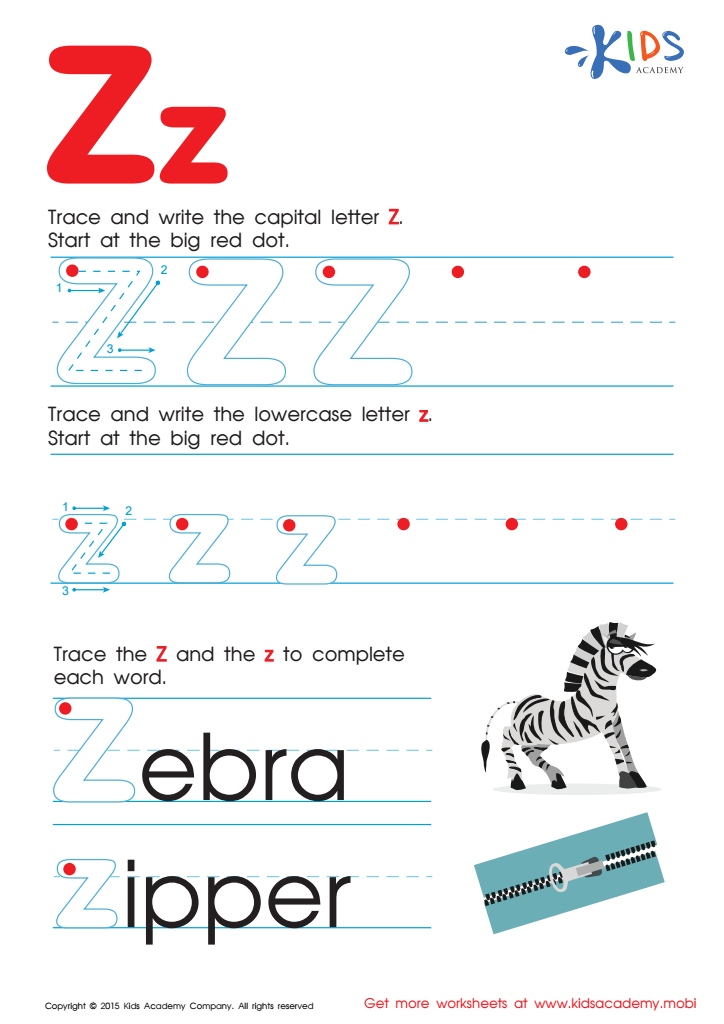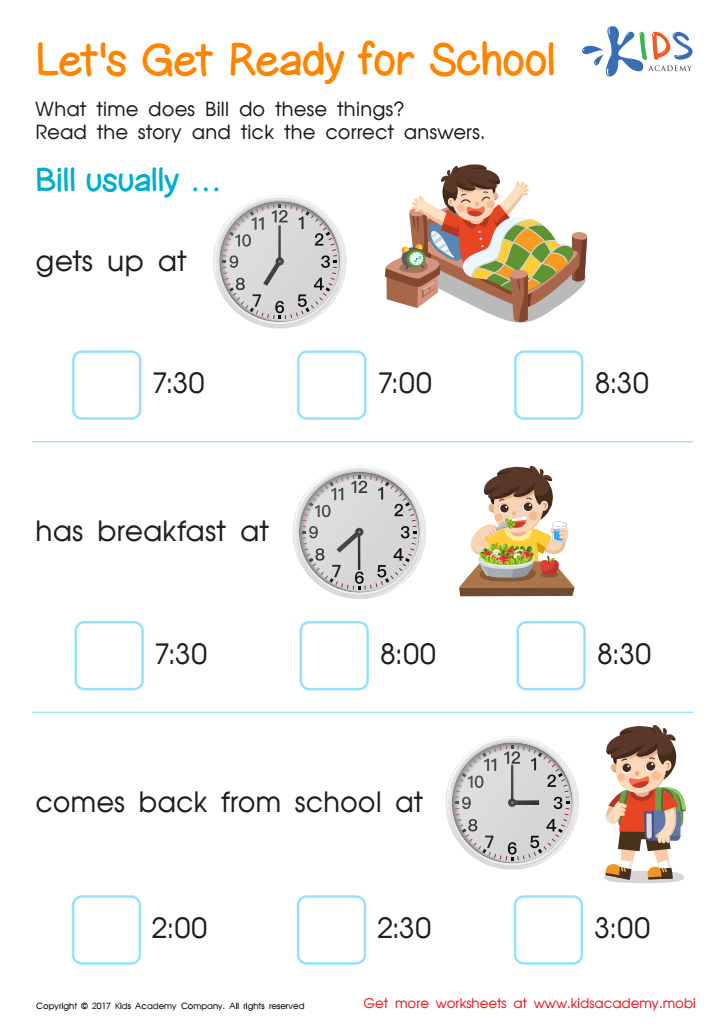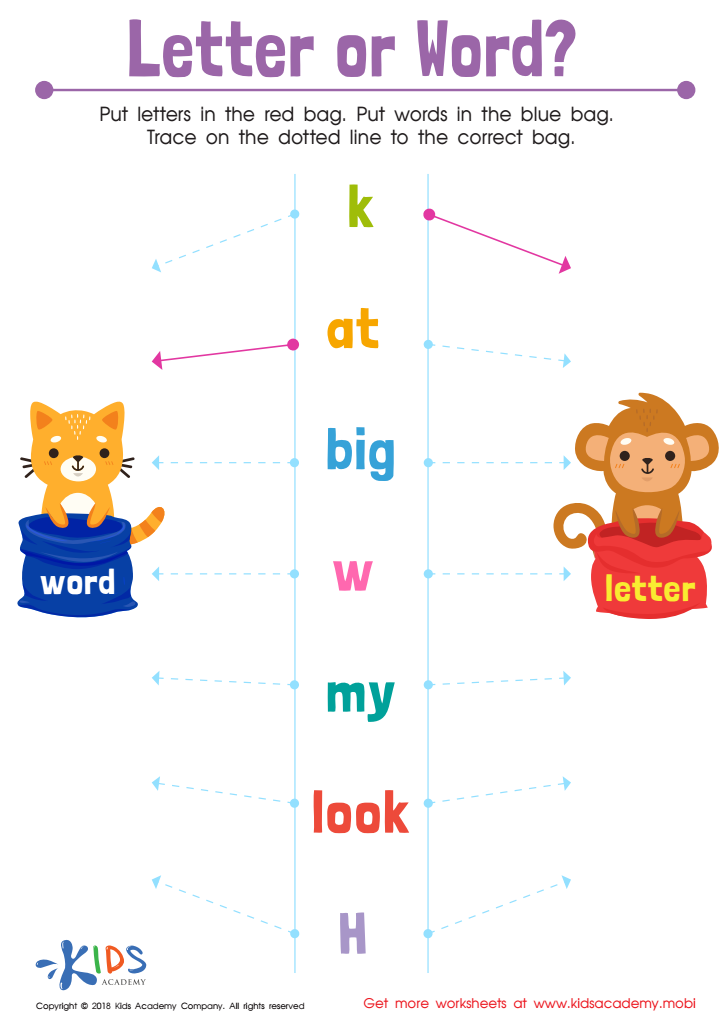Handwriting improvement Extra Challenge Worksheets for Ages 4-6
3 filtered results
-
From - To
Discover our "Handwriting Improvement Extra Challenge Worksheets" designed specifically for children ages 4-6. These engaging worksheets provide a fun way to enhance your child's handwriting skills, helping them develop fine motor coordination and a love for writing. With a variety of captivating exercises, your little learners will practice tracing, writing letters, and forming words in an enjoyable manner. These worksheets are perfect for both classroom settings and at-home learning, ensuring children gain confidence in their writing abilities. Spark creativity and improve handwriting fluency with our extra challenge worksheets, ideal for young learners eager to elevate their writing skills!


Letter Z Tracing Page


Lets Get Ready For School Time Printable


Letter or Word? Worksheet
Handwriting improvement in children aged 4-6 is essential for their overall development and academic success. At this early stage, children are developing fine motor skills, which are crucial for tasks beyond writing, such as tying shoelaces and using scissors. Enhancing their handwriting helps refine these skills, promoting hand-eye coordination and dexterity.
Moreover, handwriting serves as a foundational tool for communication. As children learn to express their thoughts in writing, they develop confidence in their abilities, contributing to positive self-esteem. Clear and legible handwriting is vital for effective communication in schooling, enabling teachers to assess students' work accurately.
Additionally, a focus on handwriting lays the groundwork for a lifetime of skills. Children who master the basics at this age may show better performance in literacy and academic subjects later on. Handwriting activities can also be a fun and engaging way to promote concentration and patience.
Lastly, improving handwriting fosters creativity and personal expression. Encouraging children to experiment with how they write can enhance their attachment to writing as a beautiful and enjoyable form of art. Overall, prioritizing handwriting improvement significantly impacts children’s confidence, skills, and attitudes towards learning.
 Assign to My Students
Assign to My Students
















